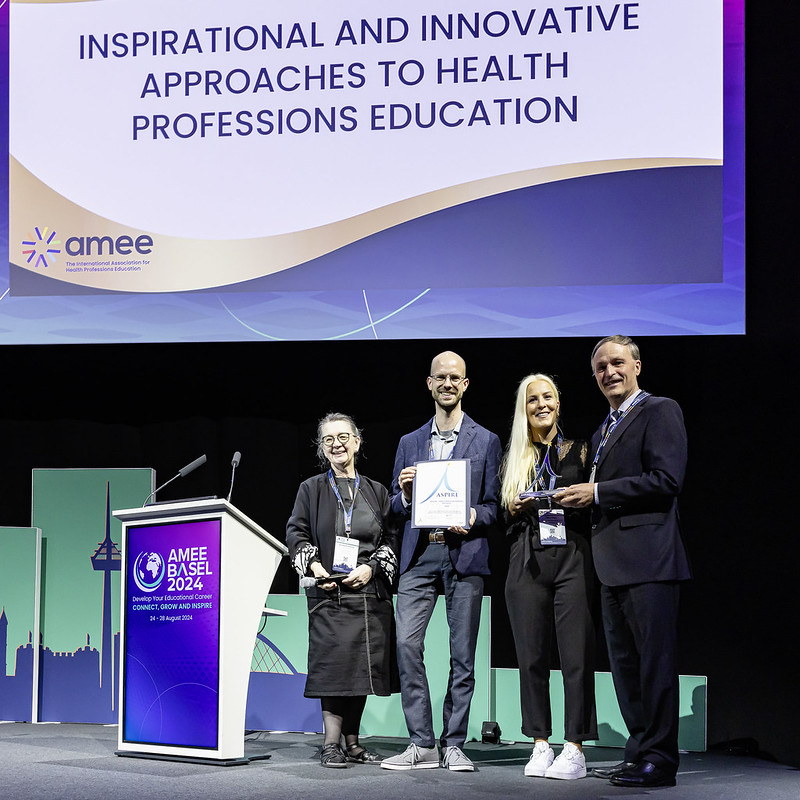2025 Winners
Charite Universitatsmedizin, Berlin STELLAR AWARD
Inspirational & Innovative Approaches to Health Professions Education Faculty of Medicine, Chulalongkorn University, Thailand ASPIRE Award Collaborative Project to Increase Production of Rural Doctors, Thailand ASPIRE Award School of Medicine, Trinity College Dublin, Ireland ASPIRE Award
International Collaboration in Health Professions Education Columbia University & National Taiwan University for the
International Collaboration and Exchange Programme (ICEP Global) ASPIRE Award University Medical Center, Utrecht, The Netherlands ASPIRE Award The RCSI/COSECSA Collaboration Programme ASPIRE Award The Alberta Institute, Wenzhou Medical University ASPIRE Award
Student Engagement LKC School of Medicine, Nanyang Technological University, Singapore ASPIRE Award Riphah International University, Islamabad, Pakistan ASPIRE Award
Social Accountability Pontifical Catholic University of Parana, Brazil ASPIRE Award The Association of Faculties of Medicine of Canada ASPIRE Award
Technology Enhanced Learning Pontifical Catholic University of Parana, Brazil ASPIRE Award
2024 Winners
Curriculum Development School of Dentistry, IMU, Malaysia ASPIRE Award
Inspirational & Innovative Approaches to Health Professions Education Charite Universitatsmedizin, Berlin ASPIRE Award
International Collaboration in Health Professions Education Baylor College of Medicine, Houston, Texas ASPIRE Award
Student Engagement Linkopings Universitet, Sweden ASPIRE Award
2023 Winners
Aga Khan Uni Medical College, Pakistan STELLAR AWARD
Social Accountability University of Miami Leonard M Miller School of Medicine, Florida ASPIRE Award
Faculty Development Office of the Collaborative Project to Increase Production of Rural Doctors, Thailand ASPIRE Award
International Collaboration in Health Professions Education First Affiliated Hospital of Sun Yat-sen Medical University and AMEE UK ASPIRE Award











